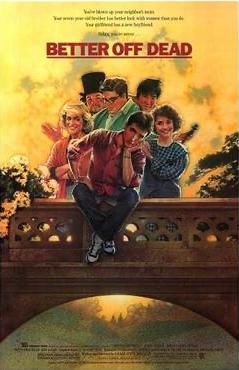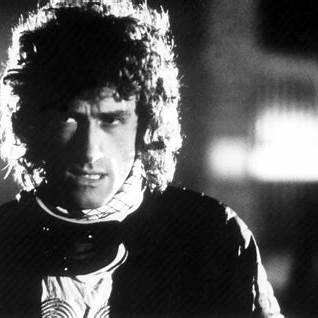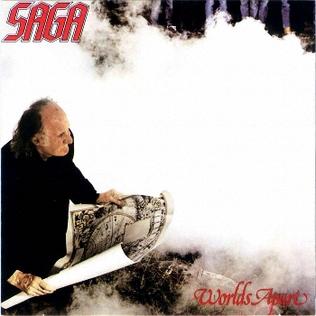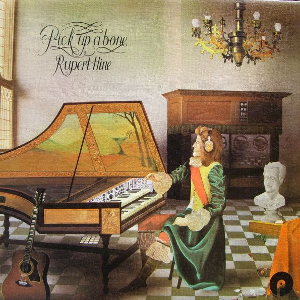The identity of the longest word in English depends on the definition of a word and of length.

Taumatawhakatangihangakoauauotamateaturipukakapikimaungahoronukupokaiwhenuakitanatahu is a hill near Porangahau, south of Waipukurau in southern Hawke's Bay, New Zealand. The height of the hill is 305 metres (1,001 ft). The hill is notable primarily for its unusually long name, which is of Māori origin; it is often shortened to Taumata for brevity. It has gained a measure of fame as it is the longest place name found in any English-speaking country, and possibly the longest place name in the world, according to World Atlas. The name of the hill has also been listed in the Guinness World Records as the longest place name. Other versions of the name, including longer ones, are also sometimes used.

Better Off Dead is a 1985 American dark comedy film written and directed by Savage Steve Holland. It stars John Cusack as high school student Lane Myer, who becomes suicidal after his girlfriend breaks up with him shortly before Christmas.

Reach the Beach is the second studio album by English new wave band the Fixx, released on 15 May 1983 by MCA Records. It was the group's most successful studio album, reaching No. 8 on the Billboard albums chart and eventually selling two million copies in the United States alone. The album was certified Platinum by the RIAA. It was certified platinum in Canada in November 1983. The album's cover art was provided by George Underwood, who went on to illustrate future Fixx releases including Phantoms (1984), Calm Animals (1989), and Beautiful Friction (2012).

Phantoms is the third studio album by English new wave band the Fixx, released in 1984 by MCA Records.

Walkabout is the fourth studio album by the English new wave band the Fixx, released in 1986. The first single, "Secret Separation", spent two weeks atop the Billboard Album Rock Tracks chart in July 1986; it was the band's second No. 1 single on the chart.

The Fixx are a new wave rock band from London, England, founded in 1979. The band's hits include "One Thing Leads to Another", "Saved by Zero", "Are We Ourselves?", and "Secret Separation", each of which charted in the Top 20 of the Billboard Hot 100, as well as mainstream rock chart hits "Red Skies", "Stand or Fall", "Driven Out" and "Deeper and Deeper", which was featured on the soundtrack of the 1984 film Streets of Fire. Despite their success in North America, the band achieved comparatively little recognition in their native United Kingdom, failing to make the top 40 in either the album or singles charts with any of their releases.

Rupert Neville Hine was an English musician, songwriter and record producer. He produced albums for artists including Rush, Kevin Ayers, Tina Turner, Howard Jones, Saga, the Fixx, Bob Geldof, Thompson Twins, Stevie Nicks, Chris de Burgh, Suzanne Vega, Underworld, Duncan Sheik, Formula and Eleanor McEvoy. Additionally, Hine recorded eleven albums, including those billed under his own name, the pseudo-band name Thinkman, and as a member of the band Quantum Jump; with the latter, he achieved a number 5 hit on the UK Singles Chart in 1979, "The Lone Ranger". Additionally, he composed for film and television soundtracks, including the 1989 Ian Fleming biopic Goldeneye and the black comedy Better Off Dead.

"Better Be Good to Me" is a song written by Mike Chapman, Holly Knight, and Nicky Chinn, recorded by Tina Turner for her solo record Private Dancer (1984) and released as a single in August 1984. The song was originally recorded and released in 1981 by Spider, a band from New York City that featured co-writer Knight as a member. Turner's version was successful in the United States and peaked at No. 5 on the Billboard Hot 100 and No. 6 on the then-Hot Black Singles charts. At the 27th Annual Grammy Awards in 1985, it won Best Rock Vocal Performance, Female, one of four Grammys awarded to Turner's Private Dancer album at that ceremony. The song was also included on the Miami Vice soundtrack.
The Wildest Wish to Fly is a solo album by Rupert Hine. It was originally released in 1983 on A&M Records and Island Records and re-released on CD in 2001 on VoicePrint. The album peaked at #31 on the Swedish album chart.

Worlds Apart is the fourth studio album by the Canadian neo-progressive rock band Saga and was originally released in 1981. The album was produced by Rupert Hine, and has been released with several different covers. Frontman Michael Sadler stated in the band's video DVD Silhouette (2002) that Hine told him to stop "singing like a choir boy". Sadler's vocal style was noticeably different on Worlds Apart than on the first three Saga albums; he kept that style in successive performances with the band. Hine reportedly had Sadler climb to the roof of the English barn where the band was recording in order to get the proper emotion from Sadler for "On the Loose".
The Peddlers were a British jazz/soul trio of the 1960s and 1970s. Led by organist Roy Phillips, they had hits with "Birth" and "Girlie". They were very popular in New Zealand during the 1970s.

Man on the Line is the seventh studio album by Chris de Burgh, released in 1984.
Eight Seconds was a Canadian synthpop/progressive rock band formed in 1982 in Ottawa. They are perhaps best known for their 1986 single "Kiss You " which peaked at #14 in 1987 and was on the charts for 28 weeks in Canada from the album Almacantar. The band's lineup included Andrés del Castillo (vocals/guitar), March Cesare (bass), Frank Levin (keyboards), Scott Milks (drums), and Marc Parent (guitar).
Stephen William Negus is a Canadian drummer, songwriter, who was a member of the progressive rock band Saga for twenty-six years. In the late 80s, he and keyboardist Jim Gilmour left Saga and formed GNP.

Happy Landings and Lost Tracks is a compilation album by the Fixx released on 11 December 2001.
Ke-mo sah-bee is the term used by the fictional Native American sidekick Tonto as the "Native American" name for the Lone Ranger in the American television and radio programs The Lone Ranger. Derived from gimoozaabi, an Ojibwe and Potawatomi word that may mean 'he/she looks out in secret', it has been occasionally translated as 'trusty scout' or 'faithful friend'.

Pick Up a Bone is the first album by Rupert Hine, released in 1971. Pick Up a Bone was the only album by Hine that he did not produce himself.
John G. Perry is an American-born British bass guitarist and singer. He was born in the U.S. to British parents and when he was young, the family moved back to England.

"December" is a song from Scottish-Irish folk rock band The Waterboys, which was released in 1983 as the second and final single from their debut studio album The Waterboys. The song was written and produced by Mike Scott, with additional production by Rupert Hine. A music video was filmed to promote the single.












